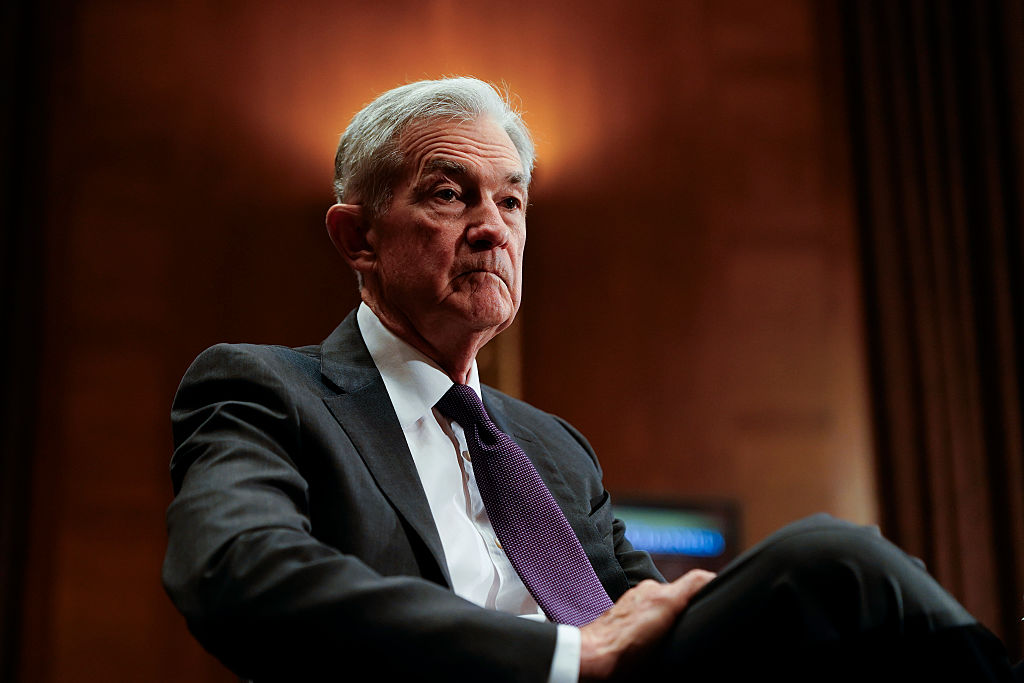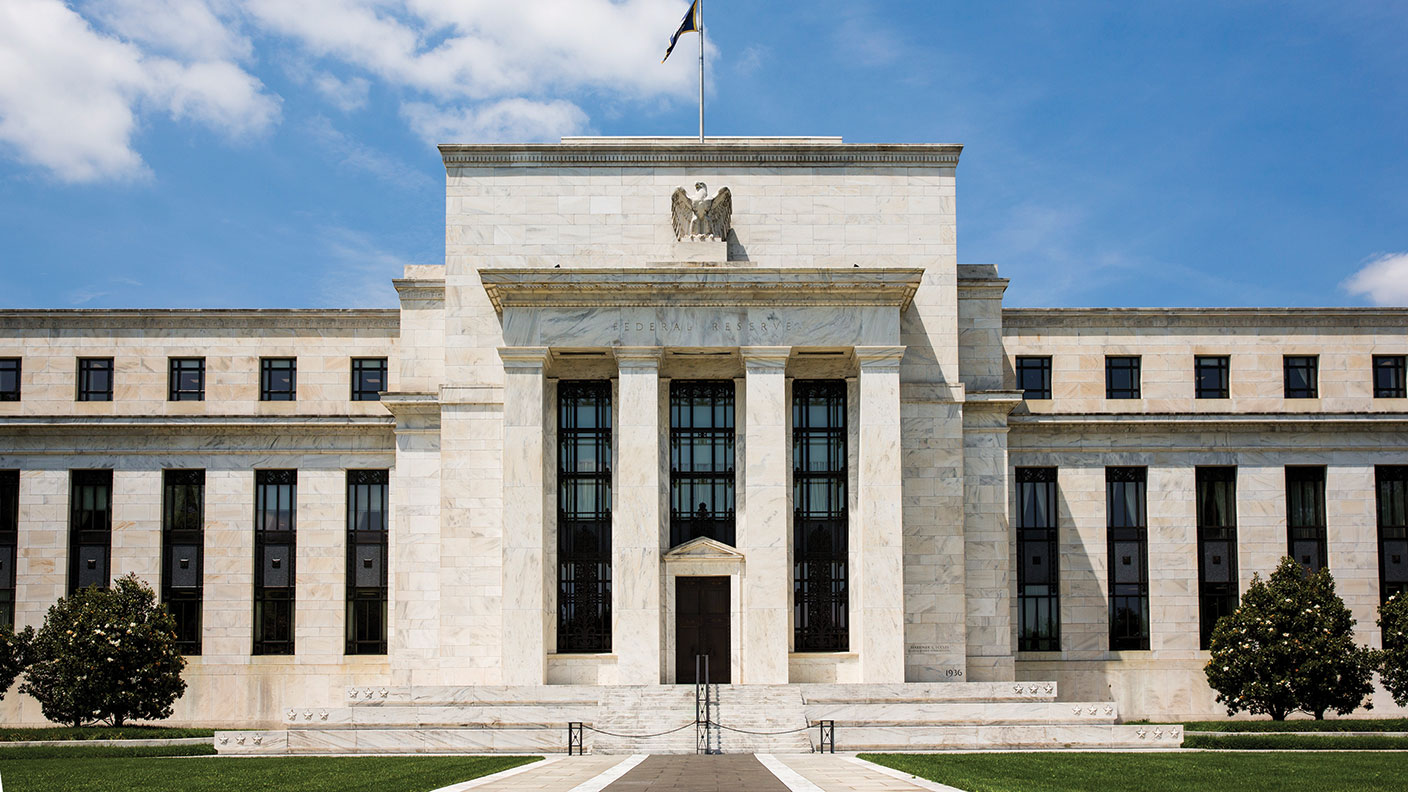US inflation rises to 3.7% as energy prices surge - will the Fed hike rates?
US consumer price index rose in August but markets do not expect a rate hike this month


Get the latest financial news, insights and expert analysis from our award-winning MoneyWeek team, to help you understand what really matters when it comes to your finances.
You are now subscribed
Your newsletter sign-up was successful
Want to add more newsletters?

Twice daily
MoneyWeek
Get the latest financial news, insights and expert analysis from our award-winning MoneyWeek team, to help you understand what really matters when it comes to your finances.

Four times a week
Look After My Bills
Sign up to our free money-saving newsletter, filled with the latest news and expert advice to help you find the best tips and deals for managing your bills. Start saving today!
US inflation rose to 3.7% in August, driven by a sharp increase in energy prices and higher costs for rent.
The US inflation rate was 3.7% over the 12 months to August, the Labor Department said - up from 3.2% in July.
The year-over-year increase was slightly higher than economist forecasts of a 3.6% annual jump.
MoneyWeek
Subscribe to MoneyWeek today and get your first six magazine issues absolutely FREE

Sign up to Money Morning
Don't miss the latest investment and personal finances news, market analysis, plus money-saving tips with our free twice-daily newsletter
Don't miss the latest investment and personal finances news, market analysis, plus money-saving tips with our free twice-daily newsletter
The price of energy commodities, including gas and oil, jumped up 10.5% over the last month.
Will the Fed raise interest rates?
Despite the surprise inflation rise, analysts do not expect the figures to complicate matters for the Federal Reserve as policymakers tend to focus on core inflation numbers, which strip out volatile food and energy prices.
“Inflation data from the US yesterday was mixed but there wasn’t anything in there to cause major alarm for either investors or the Federal Reserve, even if energy prices are starting to become a relevant inflationary pressure again,” says Russ Mould, AJ Bell’s investment director.
On a core basis, prices in August climbed 4.3% over last year — a slowdown from the 4.7% annual increase seen in July.
Within core inflation, rent prices surged. The index for rent and owners' equivalent rose 0.5% and 0.4% on a monthly basis, respectively. Owners' equivalent rent is the hypothetical rent a homeowner would pay.
"If you look at what’s going on underneath the surface, core inflation continues to gradually cool," says David Kelly, chief global strategist for J.P. Morgan Asset Management. "I don’t think people should look at it as some kind of revival of inflation pressure."
The data is unlikely to make the Federal Reserve raise interest rates at its next meeting but it could push it to act later in the year, says Jeffrey Cleveland, chief economist at Payden & Rygel.
Seema Shah, chief global strategist at Principal Asset Management, believes one more rate hike is still possible before the end of the year.
"The inflation print likely is not enough to tilt next week’s Fed call towards a hike, yet it also hasn’t entirely cleared up the question of a November pause vs. hike,” she says.
What is the current interest rate in the US?
The Fed has already raised its benchmark interest rate to the highest level in 22 years, targeting a range of 5.25% to 5.5%.
The Fed rate is a range because the Federal Reserve cannot mandate a set number.
Fed chairman Jerome Powell warned last August that inflation remained “too high".
"We are prepared to raise rates further if appropriate, and intend to hold policy at a restrictive level until we are confident that inflation is moving sustainably down toward our objective," he said.
Like the Bank of England, the US Federal Reserve has a mandate to keep inflation at 2%.
The US central bank will meet to decide whether to or not to keep the rates unchanged at its September 20th policy meeting.
Get the latest financial news, insights and expert analysis from our award-winning MoneyWeek team, to help you understand what really matters when it comes to your finances.

Pedro Gonçalves is a finance reporter with experience covering investment, banks, fintech and wealth management. He has previously worked for Yahoo Finance UK, Investment Week, and national news publications in Portugal.
-
 Should you buy an active ETF?
Should you buy an active ETF?ETFs are often mischaracterised as passive products, but they can be a convenient way to add active management to your portfolio
-
 Power up your pension before 5 April – easy ways to save before the tax year end
Power up your pension before 5 April – easy ways to save before the tax year endWith the end of the tax year looming, pension savers currently have a window to review and maximise what’s going into their retirement funds – we look at how
-
 How a dovish Federal Reserve could affect you
How a dovish Federal Reserve could affect youTrump’s pick for the US Federal Reserve is not so much of a yes-man as his rival, but interest rates will still come down quickly, says Cris Sholto Heaton
-
 New Federal Reserve chair Kevin Warsh has his work cut out
New Federal Reserve chair Kevin Warsh has his work cut outOpinion Kevin Warsh must make it clear that he, not Trump, is in charge at the Fed. If he doesn't, the US dollar and Treasury bills sell-off will start all over again
-
 'Investors should brace for Trump’s great inflation'
'Investors should brace for Trump’s great inflation'Opinion Donald Trump's actions against Federal Reserve chair Jerome Powell will likely stoke rising prices. Investors should prepare for the worst, says Matthew Lynn
-
 'Governments are launching an assault on the independence of central banks'
'Governments are launching an assault on the independence of central banks'Opinion Say goodbye to the era of central bank orthodoxy and hello to the new era of central bank dependency, says Jeremy McKeown
-
 Will Donald Trump sack Jerome Powell, the Federal Reserve chief?
Will Donald Trump sack Jerome Powell, the Federal Reserve chief?It seems clear that Trump would like to sack Jerome Powell if he could only find a constitutional cause. Why, and what would it mean for financial markets?
-
 Do we need central banks, or is it time to privatise money?
Do we need central banks, or is it time to privatise money?Analysis Free banking is one alternative to central banks, but would switching to a radical new system be worth the risk?
-
 Will turmoil in the Middle East trigger inflation?
Will turmoil in the Middle East trigger inflation?The risk of an escalating Middle East crisis continues to rise. Markets appear to be dismissing the prospect. Here's how investors can protect themselves.
-
 Federal Reserve cuts US interest rates for the first time in more than four years
Federal Reserve cuts US interest rates for the first time in more than four yearsPolicymakers at the US central bank also suggested rates would be cut further before the year is out